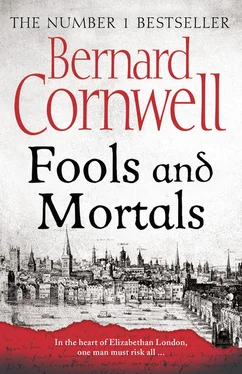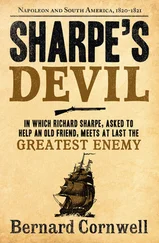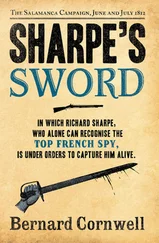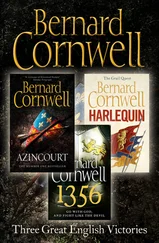The rehearsal was not going well. A hired man called Robert Pallant had to take George’s part. Pallant was a middle-aged man with a paunch, a spade beard, and a hangdog face. He was nervous because he was playing Egeon, a merchant, who opened the play with an immensely long speech that Pallant had memorised, but kept mangling. Everyone else was just bad-tempered. ‘Let’s start again,’ my brother had suggested, after Pallant stammered to a halt for the fourth or fifth time.
The six players all went to the back of the stage as if they had just come through the doors from the tiring room. ‘The trumpet sounds,’ Alan Rust said, ‘it ends, and you enter.’
Pallant walked towards the front of the stage. ‘Proceed,’ he began and got no further.
‘Jesu! You walk as if you’ve got a bone up your arse!’ Alan Rust bellowed. Pallant stopped and looked astonished.
‘What?’ he began.
‘What’s your first line?’ Rust growled.
‘Um …’
‘Christ on his silver-painted cross! If I ever hear the word “um” on this stage I will kill! I will kill! What’s your goddamned line?’
‘“Proceed, Solinus, to procure my fall and by the doom of death end woes and all.”’
‘End our woes. Christ grant us that blessing! And to whom are you speaking? Pray tell me?’
‘The duke.’
‘The duke! So why are you wandering like a constipated goose to the front of the goddamned stage? The duke is there!’ He pointed to my brother, who was standing on the right-hand side of the stage.
‘The speech …’ Pallant began weakly.
‘I’ve read the goddamned speech,’ Rust snarled. ‘It took a week of my life, but I read it! God in His feather-stuffed bed, man! There isn’t time to watch you waddle as well as listen to the endless stuff. Say the words to the duke! This is a goddamned play, not a bleeding sermon in Saint Paul’s. It needs life, man, life! Start again.’
Alan Rust was new to the company. He had been playing with Lord Pembroke’s men, and James Burbage and my brother had persuaded the other Sharers to let Rust join us. ‘He’s very good,’ my brother had explained to the company, ‘and the audiences like him. He’s also very good at staging. Have you noticed?’
‘No,’ Will Kemp said. He alone among the Sharers had opposed Rust, suspecting that the newcomer had a character as forceful as his own. Kemp had been out-voted, and so Rust was here to tell us what to do on the stage; where to move, how to say the words, how to do all the things that previously the Sharers had squabbled about. They still squabbled, of course, but Rust had imposed some order on the chaos.
‘Jesus on his jakes,’ Rust now shouted at Robert Pallant, ‘what in Christ’s name are you doing?’
‘Going towards the duke,’ Pallant said hopefully.
‘You move like a constipated nun! If you’re moving,’ Rust spoke from the yard where the groundlings stood to watch the plays, ‘then for Christ’s sake move! And talk at the same time! You can do that, can’t you? Go back to the duke’s last line. What is it?’ he demanded of my brother, who played Duke Solinus.
‘“Well, Syracusian, say in brief …”’ my brother began.
‘In brief? Jesus in a rainstorm! Brief? The speech is longer than the book of Genesis! And you,’ he pointed at me, ‘what are you smiling at?’
‘Simon Willoughby just farted,’ I said.
‘At least that’s more interesting than Egeon’s speech,’ Rust said.
‘I did not fart!’ Simon squealed. The rest of us wore our usual clothes, but little Simon had put on a long skirt for the rehearsal. He flounced towards the front of the stage. ‘I did not!’
‘Can we proceed, gentlemen?’ Rust asked sourly.
So we did, but slowly. I was sitting at the edge of the stage because I would not be needed for some time. I was playing Emilia, wife to Egeon. It was not a large part, my words scarcely filled a sheet of paper, but we had not performed the Comedy for some weeks, and I had forgotten many of the lines. ‘“Most mighty duke,”’ I kept saying to myself, trying to relearn the words, ‘“behold a man much wronged!”’
‘Go and mutter somewhere else,’ Rust snarled at me, ‘somewhere I can’t hear you.’
I went to the lower gallery, where I had talked with James Burbage. There were at least a score of people already in the gallery because the Sharers never minded folk watching the rehearsals. There were the girlfriends of some of the players, two boyfriends, and a happy gaggle of girls from the Dolphin. The Dolphin is a fine tavern which sells ale, food, and whores, and the girls earned a few pence more by selling hazelnuts to the groundlings before each performance, and then earned shillings by climbing to the galleries and selling themselves. Three of them were now giggling on the front bench, and they gave me coy looks as I settled just behind and above them. Jeremiah, the sour old soldier who guarded the front door, was fond of the girls, and had given them each a small bag of hazelnuts that they cracked under their heels while Robert Pallant laboriously told the story of his shipwreck.
The tale had always seemed most unlikely to me. Egeon, the merchant, had been at sea with his wife, his twin sons, and twin boy servants, when the ship had hit a rock and they had all been thrown into the stormy waves, and the wife, one son, and one servant had drifted one way, while Egeon, with the other son and servant, had drifted the other. It took Pallant forever to tell the story. I closed my eyes, and a moment later a voice said, ‘Open your mouth.’
‘Hello, Alice,’ I said, without opening my eyes.
‘Nut for you,’ she said. I opened my mouth, and she put a hazelnut on my tongue. ‘Are you a girl again?’ she asked.
‘I’m a woman. An abbess.’
She tucked her arm through mine and nestled into me. ‘Can’t see you as an abbess,’ she said. It was chilly, but at least it was not raining. ‘But you do look lovely as a girl,’ she went on.
‘Thank you,’ I said, as ungratefully as I could.
‘You should come and work with us.’
‘I’d like that,’ I said, ‘but what happens when some bastard lifts my skirts?’
‘Just roll over, of course,’ she said.
‘Your hands will be tied behind your back,’ Rust shouted at poor Pallant, ‘so don’t gesture!’
‘Does he find his wife again?’ Alice asked me.
‘I’m his wife,’ I said, ‘and yes. He finds me at the end of the play.’
‘But you’re an abbess! How could an abbess be married? They were nuns, weren’t they?’
‘It’s a long story,’ I said.
‘But he does find her?’
‘He does,’ I said, ‘and his long lost son too.’
‘Oh good! I was worried.’
She was sixteen, perhaps fifteen or maybe seventeen, a slight girl from Huntingdonshire, with very fair hair, a narrow face, squirrel eyes, and a weak chin, but somehow the parts added up to a delicate beauty. She could play an elf, I thought, or a fairy, except the surest way to rouse the fury of the Puritans was to put a girl on the stage. They already accused us of being the devil’s playthings, purveyors of evil and the spawn of Satan, and if we did not have the protection of the Queen and of the nobility, we would have been whipped out of town on hurdles long ago.
‘It’s so sad,’ Alice said.
‘What’s sad?’
‘That he was shipwrecked and lost his wife.’
‘It’s poxy stupid,’ I said. ‘If they’d all drifted, they’d have drifted in the same direction.’
‘But it didn’t happen that way,’ she protested. ‘Poor old man.’
‘Why don’t you go home?’ I asked her.
‘To the Dolphin?’
‘No, to Huntingdon.’
‘And milk cows? Churn butter?’ she sounded wistful. ‘I was shipwrecked. So were you.’
Читать дальше












